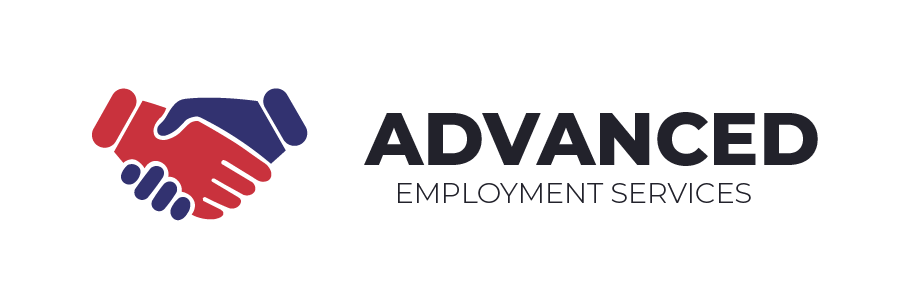Table of Contents
Good communication is the cornerstone of a successful workplace. As an employee, the ability to convey your thoughts, listen actively, and respond appropriately can significantly impact your career progression and the overall work environment. Whether you’re interacting with colleagues, managers, or clients, strong communication skills are essential for building relationships, solving problems, and achieving professional goals.
In this article, we will explore why good communication is vital, provide actionable tips on how to improve your communication skills, and offer resources to help you on this journey. This information is designed to assist you in enhancing your communication abilities with the support of Advanced Employment Services.
Why Good Communication is Important
Good communication is essential for several reasons:
- Fostering Collaboration: Effective communication enables teamwork and collaboration. When employees can express their ideas clearly and listen to others, they contribute to a more cohesive and productive team environment.
- Reducing Misunderstandings: Miscommunication can lead to errors, conflicts, and delays. Good communication skills help prevent misunderstandings by ensuring that messages are conveyed and received accurately.
- Enhancing Professional Relationships: Strong communication skills allow you to build rapport with colleagues, supervisors, and clients. These relationships are crucial for a positive work environment and career advancement.
- Boosting Confidence: Being able to communicate effectively boosts your confidence in the workplace. Whether you’re giving a presentation, participating in a meeting, or handling a difficult conversation, good communication skills can help you express yourself with assurance.
- Improving Problem-Solving: Communication is key to problem-solving. By clearly articulating issues, listening to others’ perspectives, and collaborating on solutions, you can contribute to resolving challenges more effectively.

How to Improve My Communication Skills
Improving your communication skills is an ongoing process that requires self-awareness, practice, and a willingness to learn. Here are some strategies you can implement to enhance your communication skills:
Active Listening Example
Imagine you’re in a team meeting where a colleague is presenting a new project idea. Instead of thinking about how you’ll respond, focus on what your colleague is saying. Nod to show you’re listening, and when they’re done, summarize their points before adding your own thoughts.
Tip: Active listening involves more than just hearing words. It requires paying full attention, understanding the message, and responding thoughtfully. Practice active listening by avoiding distractions, making eye contact, and providing feedback that shows you understand.
Resource: The book The Lost Art of Listening by Michael P. Nichols is an excellent resource for improving your listening skills. It offers practical advice on how to become a better listener, which is fundamental to good communication.
Clear and Concise Communication Example
When writing an email, aim to be clear and to the point. Instead of saying, “I think we should maybe consider doing this task a bit differently,” say, “I recommend we approach this task differently to improve efficiency.”
Tip: Clarity and brevity are crucial in communication. Avoid jargon, use simple language, and get straight to the point. This ensures that your message is easily understood and reduces the chances of miscommunication.
Resource: On Writing Well by William Zinsser is a great resource for learning how to write clearly and effectively, a skill that is transferable to all forms of communication.
Nonverbal Communication Example
During a presentation, your body language can convey confidence and engagement. Stand up straight, maintain eye contact, and use hand gestures to emphasize key points.
Tip: Nonverbal cues such as body language, facial expressions, and tone of voice play a significant role in communication. Being aware of your nonverbal signals can help you communicate more effectively. Practice by observing your own body language and making adjustments as needed.
Resource: The Definitive Book of Body Language by Barbara Pease and Allan Pease provides insights into reading and using body language effectively in communication.
Empathy in Communication Example
If a coworker is going through a tough time, show empathy by acknowledging their situation and offering support. For instance, say, “I understand you’re dealing with a lot right now. Let me know if there’s anything I can do to help.”
Tip: Empathy involves understanding and sharing the feelings of others. When you communicate with empathy, you build stronger relationships and create a more supportive work environment. Practice empathy by putting yourself in others’ shoes and responding with kindness.
Resource: Emotional Intelligence 2.0 by Travis Bradberry and Jean Greaves offers practical strategies for developing empathy and emotional intelligence, both of which are essential for good communication.
Feedback and Constructive Criticism Example
When giving feedback to a colleague, use the “sandwich” approach: start with a positive comment, provide constructive criticism, and end with another positive note. For example, “Your presentation was very informative. One suggestion for improvement is to slow down a bit when explaining complex points. Overall, you did a great job engaging the audience.”
Tip: Giving and receiving feedback is an integral part of communication in the workplace. When providing feedback, be specific, focus on the behavior rather than the person, and offer solutions. When receiving feedback, listen with an open mind and avoid becoming defensive.
Resource: Thanks for the Feedback by Douglas Stone and Sheila Heen is a valuable resource for understanding how to give and receive feedback effectively.
Adapting to Different Communication Styles Example
If you’re working with a detail-oriented colleague, provide them with thorough information and follow up with any necessary clarifications. Conversely, if you’re communicating with a big-picture thinker, focus on the overall vision and key points.
Tip: Different people have different communication styles. Some may prefer detailed explanations, while others might appreciate brevity. Adapt your communication style to suit the preferences of your audience to ensure your message is well-received.
Resource: People Styles at Work…And Beyond by Robert Bolton and Dorothy Grover Bolton helps you understand different communication styles and how to adapt to them effectively.
Public Speaking and Presentation Skills Example
When preparing for a presentation, practice in front of a mirror or record yourself to identify areas for improvement. Focus on speaking clearly, maintaining a steady pace, and using visual aids effectively.
Tip: Public speaking is a crucial skill in the workplace, whether you’re presenting to a small team or a large audience. To improve, practice regularly, seek feedback, and learn from experienced speakers.
Resource: Talk Like TED by Carmine Gallo provides valuable insights and techniques for delivering powerful presentations and public speeches.
Conflict Resolution Example
If a disagreement arises between you and a coworker, address it calmly and professionally. For instance, “I understand we have different perspectives on this issue. Let’s discuss our views and find a solution that works for both of us.”
Tip: Conflict is inevitable in any workplace, but how you handle it can make a big difference. Good communication is key to resolving conflicts effectively. Focus on understanding the other person’s viewpoint, finding common ground, and working towards a mutually beneficial solution.
Resource: Crucial Conversations: Tools for Talking When Stakes Are High by Kerry Patterson, Joseph Grenny, Ron McMillan, and Al Switzler is an excellent resource for learning how to navigate difficult conversations and resolve conflicts.

Advanced Employment Services: Supporting Your Communication Journey
At Advanced Employment Services, we understand the importance of good communication in the workplace. We offer a range of resources and training programs designed to help you improve your communication skills, whether you’re just starting your career or looking to advance to the next level.
Our services include:
- One-on-One Coaching: Personalized coaching sessions that focus on your specific communication challenges and goals.
- Networking Opportunities: Connect with other professionals to practice your communication skills in a supportive environment.
By taking advantage of these resources, you can enhance your communication abilities, build stronger professional relationships, and advance your career with confidence.
Conclusion
Good communication is a vital skill for any employee, impacting every aspect of your professional life. By actively working on improving your communication skills—whether through active listening, clear and concise messaging, or empathy—you can become a more effective and confident communicator. Remember, improving communication is an ongoing process that requires practice, self-reflection, and a willingness to learn.
At Advanced Employment Services, we’re committed to helping you succeed. Whether you’re looking for training, coaching, or resources, we provide the support you need to enhance your communication skills and achieve your career goals.
So, take the first step today. Use the tips and resources provided in this article to start improving your communication skills and watch as your professional relationships, productivity, and career prospects grow.



